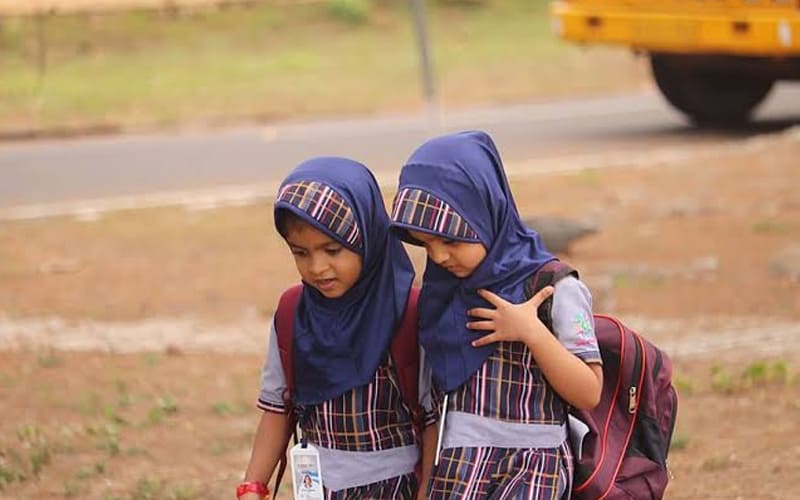
Representation Image
An academic study has brought to the fore, a fact that is well known to those who face such discrimination. According to a report in Twocircles.net, a recently published research has shown how young Muslim children have had to fave “educational marginalisation” in the national Capital. The study has also revealed that literacy rates among the Muslim community grow at much slower rates than among SCs/STs.
The research was conducted by scholars Jannat Fatima Farooqui (Research Scholar, Department of Social Work, University of Delhi) and Sukanya Sen (Consultant, National Commission for Protection of Child Rights), published in the Journal of Education and Human Development. It is a study of how Muslim children face “systematic exclusion at the pre-primary level at private schools in New Delhi”.
The study titled “Early Educational Marginalisation for Muslim Children in India: An Analysis of Nursery School Admission in Private Schools of Delhi, India” was published by the American Institute of Policy development in December 2020, and shows how the marginalisation of Muslims in India starts at an early age. The study has shown that out of all the Muslim Children who had sought admission in nursery class to “private”, unaided schools in Delhi “less than 3% of the children got admission” and 94% were dismissed.
According to the study, later reported by TwoCircles, some schools even had “Zero admission of Muslim children” It is known that in Delhi, school admissions are given based on a “point system,” in which applicants are allotted points for each criteria they fulfil, such as neighbourhood, distance, siblings in same school, either parent as alumni, girl child, either parent a staff of the school, and education of parents etc.
According to the result, in India, it has been recorded that “Muslim families rarely possess the social, cultural and economic capital (Bourdieu, 1986) to fulfill any of these criteria. It has been argued that the educational backwardness and illiteracy of Muslims in India is a legacy of the past; wherein parents have passed on the disadvantages to their children (Bhat, & Zavier, 2005).”
The research highlighted that “disadvantaged neighbourhoods such as slums and ghettos are likely to have a lesser number of private schools. Therefore, the neighbourhood restriction limits access and choice for Muslim students. Further, a majority of Muslim students do not have parents who have been alumna of the school, who are staff/teachers in the school and who have a sibling in private school. This results in an intergenerational vicious cycle of educational marginalisation for Muslim children in the country.” This research implies that ‘quality’ private schooling in Delhi is an option only for elitist, privileged families with social capital.
According to the study, even though “girl children” get an additional point and therefore an “advantage”, the admission of Muslim girls is lesser compared to that of boys. “Reasons derived for this are poverty, preference of boy child education, reluctance towards co-ed and secular schooling, inclination towards madrasa education for girls,” stated the study.
The study also points out the “other side” as it were, and shows that the ratio of Muslim children who got admission under EWS/DG category in the private schools is relatively higher compared to the admission of Muslim children under the “general category”, as “section 12 of the Right of Children to Free and Compulsory Education Act, 2009 in India has made it compulsory for every private unaided school to admit at least 25% of its entry-level class from children belonging to economically weaker and disadvantaged groups.”
However, as the article analysis, this “higher percentage of EWS/DG category of Muslim students can be (is) reflective of the low socioeconomic conditions of the community.” The Muslim girl child remains a vulnerable category. According to the research, “foundations need to be laid through quality early childhood care and education (UNICEF, 2016), and this is crucial in “alleviating marginalization faced by children born into socially and economically disadvantaged groups like Muslims in India.”
The complete study may be read here:
Related:
